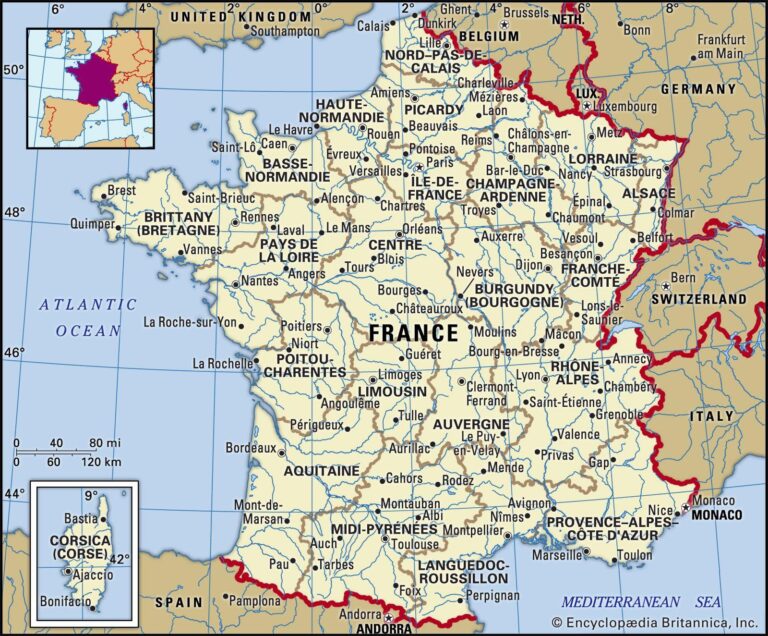France Takes Action Against Algerian Officials Amid diplomatic Strains
In a notable escalation of diplomatic friction,the French government has declared its intention to expel twelve officials from Algeria.This decision highlights the intricate adn often tumultuous relationship between France and Algeria, two nations wiht deep historical ties. Citing national security concerns and allegations of diplomatic misconduct, this move could substantially impact their already strained bilateral relations. the backdrop of increasing unrest in Algeria adds further complexity to this situation, reflecting broader geopolitical changes in North Africa. As both countries grapple with these tensions, the repercussions may extend beyond their borders, influencing regional stability and international diplomatic efforts.
Impact of France’s Expulsion on Bilateral Relations
The declaration by French authorities to expel twelve Algerian officials is seen as a direct reaction to ongoing strains in their relationship, intensified by recent claims of espionage and other forms of misconduct. French officials have expressed that these individuals’ actions pose risks to national security and compromise diplomatic integrity. The expulsion is set for immediate implementation, with sources from the French Foreign Ministry underscoring the need for restoring trust while ensuring the safety of their diplomats.
In response,Algeria’s government has condemned this action as an “unwarranted provocation” that breaches established diplomatic norms. Analysts suggest that both nations will face notable challenges as they navigate through these historical complexities. Key points regarding this diplomatic rift include:
- Enhanced Security Protocols: Both countries are likely to bolster security measures around their embassies and consulates.
- Economic Consequences: Trade relations may suffer setbacks across various sectors due to heightened tensions.
- National Sentiment: Rising nationalist feelings on both sides could complicate future negotiations.
Political Analysis: France’s Actions and algeria’s Response
The decision by France to expel twelve Algerian officials signifies a critical turning point in Franco-Algerian relations rooted in a complex colonial history alongside ongoing disputes over immigration policies. This action can be interpreted as an assertion by France regarding its domestic security priorities amid growing concerns about foreign influence within its borders. In retaliation, Algerian leaders have voiced strong objections against what they perceive as an infringement on national sovereignty and violations of existing agreements between the two nations.
This escalating situation threatens not only trade partnerships but also collaborative initiatives in areas such as counter-terrorism efforts and cultural exchanges between the two countries.
- Rising Nationalist Rhetoric: Expect increased nationalist discourse within Algeria aimed at rallying public support against perceived remnants of colonialism from France.
- Potential Economic Shifts: Algeria might reconsider its energy exports directed towards France—an adjustment that could affect both economies significantly.
- Diplomatic Realignments: In light of current events, Algeria may seek stronger alliances with other nations while leveraging its strategic position against French influence.
The international community will closely observe how both countries manage these rising tensions since any deterioration could have far-reaching implications for north african stability overall.
Strategies for Improving Diplomatic Relations During Challenging Times
Diplomatic experts stress that amidst escalating tensions between France and Algeria, strategic interaction is vital for navigating strained relationships effectively. emphasizing open dialog is crucial; representatives from both sides should engage constructively to address shared concerns through established communication channels like regular meetings or workshops involving diplomats alongside civil society members. By recognizing historical grievances while focusing on contemporary cooperation opportunities, it becomes possible for both nations to alleviate existing tensions more effectively.
Additonally,multilateral engagements , which involve other global stakeholders capable of mediating discussions impartially should be considered essential moving forward.
Creating working groups comprising diverse sector representatives—economic development specialists or cultural ambassadors—could play a pivotal role in fostering trust-building initiatives.
To ensure effectiveness across all endeavors aimed at improving relations here are some platforms worth leveraging:
| Platform | Purpose |
|---|---|
| UN Peacekeeping Forums | Facilitate dialogue & minimize conflict via collective security measures . |
| European Union Meetings | Enhance economic collaboration & promote regional stability . |
| Cultural Exchange Programs | Bridge societal gaps & foster mutual understanding . |
Pursuing these strategies prioritizes collaboration over confrontation; thus enabling progress toward establishing stable constructive relationships even amid rising pressures faced today .
Concluding Thoughts on Franco-algerian Relations
As franco-Algerian ties continue facing strain ,the recent decision made by Paris concerning expulsions represents yet another chapter filled with complexities surrounding historical grievances intertwined within modern political dynamics shared among them . As developments unfold ,the broader international community remains vigilant observing how each nation navigates potential fallout stemming from such actions taken recently ; raising questions about future cooperation prospects along lines drawn historically whilst addressing underlying issues preventing further deterioration occurring diplomatically going forward into uncertain times ahead where impacts felt here resonate well beyond borders separating them today shaping narratives surrounding colonial legacies influencing global interactions throughout twenty-first century diplomacy overall .




